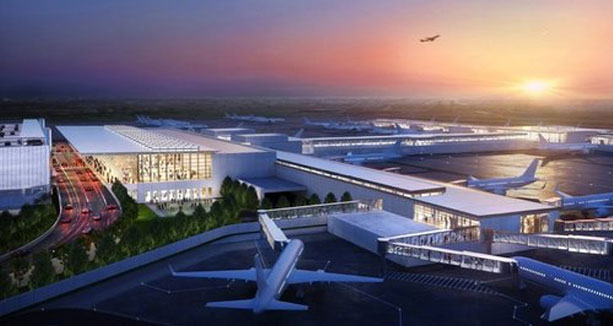
When you work in the field of economic development, it’s easy to forget that not everyone understands what you do. There are plenty of explanations floating around on Google – but they can be complicated and use terms that are confusing to the public.
At Violet PR, we’re experienced in taking big, complex concepts and turning them into stories everyone can appreciate. We decided to mark this year’s Economic Development Week (May 6-10) by inviting our team to explain commonly used terms in our field, using examples from our clients.
Economic Development
Economic development is all about strengthening a city, region or state’s economy by attracting businesses and jobs – as well as making improvements to a region’s amenities and transportation systems. New office or manufacturing projects create ripple effects by hiring workers who then spend money on local restaurants and shops. Economic development organizations work with governments, businesses, and other organizations to drive growth and improve regional economies.
In 2023, the Kansas City International Airport (MCI) underwent $1.5 billion in renovations that included several modern amenities and sustainable features. This massive airport renovation had to potential to establish Kansas City as a major travel and business destination if positioned correctly. The Violet PR team was able to build a three-month public relations strategy that earned coverage in top-tier media outlets like NBC News, Fast Company, Conde Nast Traveler, the Associated Press and more. Kansas City’s Airport overhaul is a prime example of the benefits of economic development public relations and how it can immensely boost an areas economy.
Business Retention & Expansion (BR&E)
Business Retention & Expansion is when local businesses are so successful they can expand their location or open up new stores, offices or factories. This means they can hire more people to serve more customers.
Business Attraction
Economic development organizations seek to attract national or international businesses looking to expand or relocate. Businesses grow and move for many reasons: some want to be closer to new markets or suppliers, others are looking for different kinds of skilled workers, and others might want to be closer to a port, rail line or major airport.
For example, Sugar Land is an up-and-coming city in Texas with particular benefits for those in the life science workforce. The Violet PR team worked to build press around the new businesses that are relocating to Sugar Land, as the life sciences work force is expected to grow by 33% by the year 2030. Emergency vehicle provider, Frazer, is expected to invest $4M to move to the Sugar Land area, and several buildings are being repurposed to make room for more life science businesses to relocate.
Foreign Direct Investment
Foreign Direct Investment, also known as FDI, is when companies move to a new country to expand or relocate their business. As with business attraction, they may have many reasons for choosing to make this move. Attracting investment from other countries is a key way to help our local and regional economies grow stronger.
Workforce Development
In order to convince businesses to either stay or move to an area, economic developers need to ensure they have the right mix of people there to fill new jobs. Workforce development programs focus on education, training, and reskilling programs with colleges, universities, trade and vocational schools to meet the developing needs of employers.
As the Georgia Department of Economic Development sought to establish itself as a hub for the EV manufacturing industry, Violet PR wanted to raise awareness around the immense business opportunity that existed in Georgia specifically. Our team specifically highlighted workforce training programs and innovation from academic institutions that was in place to directly support the EV industry in Georgia. Because of the specialized training and resources it’s advantageous for businesses in the EV industry to relocate to Georgia to maximize their success. Read more in our case study, “Building and Electric Vehicle Ecosystem.”
Talent Attraction
This sounds exactly like what it means – regions want to find workers with the right skills to fill open jobs. Regions and companies alike need a strategy to find the right people. As unemployment rates continue to remain at historic lows, many economic development organizations spend as many resources marketing to talent as they do to businesses.
Defining Incentives
Many U.S. regions use economic incentives to help attract businesses. Economic development incentives offer companies financial benefits in the form of tax breaks, tax credits, loans and development financing to attract or retain businesses. Many of these incentives are given out over a period of time to ensure companies meet certain hiring or building benchmarks.
With a need to attract more professionals to the capital city, the Greater Topeka Partnership started the “Choose Topeka” program which offered cash incentives to individuals willing to relocate to Topeka, Kansas. There was a particular focus on attracting professionals to help boost innovation and opportunity in the city. With support from the Violet PR team, “Choose Topeka” received 4,500 applications from over 48 states. This resulted in 40 professionals relocating, and a $3.2M regional economic impact.